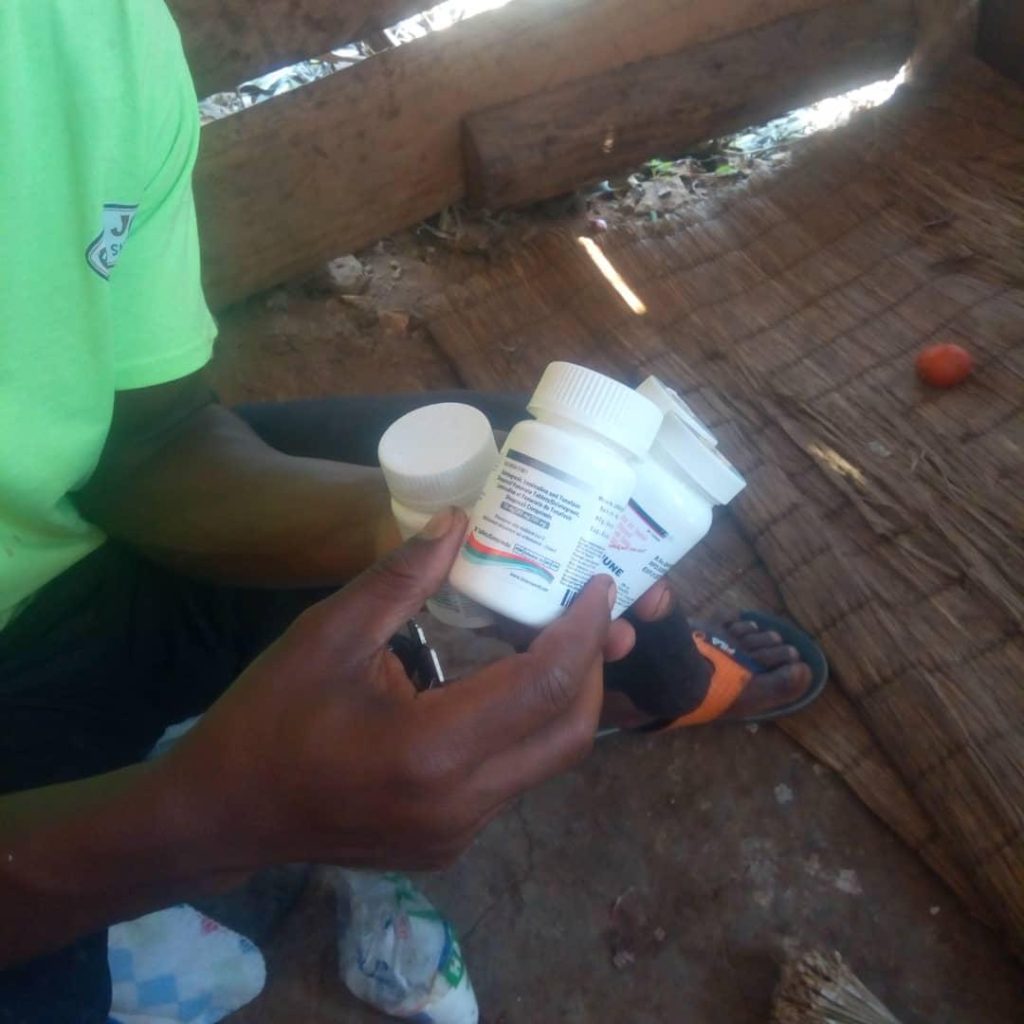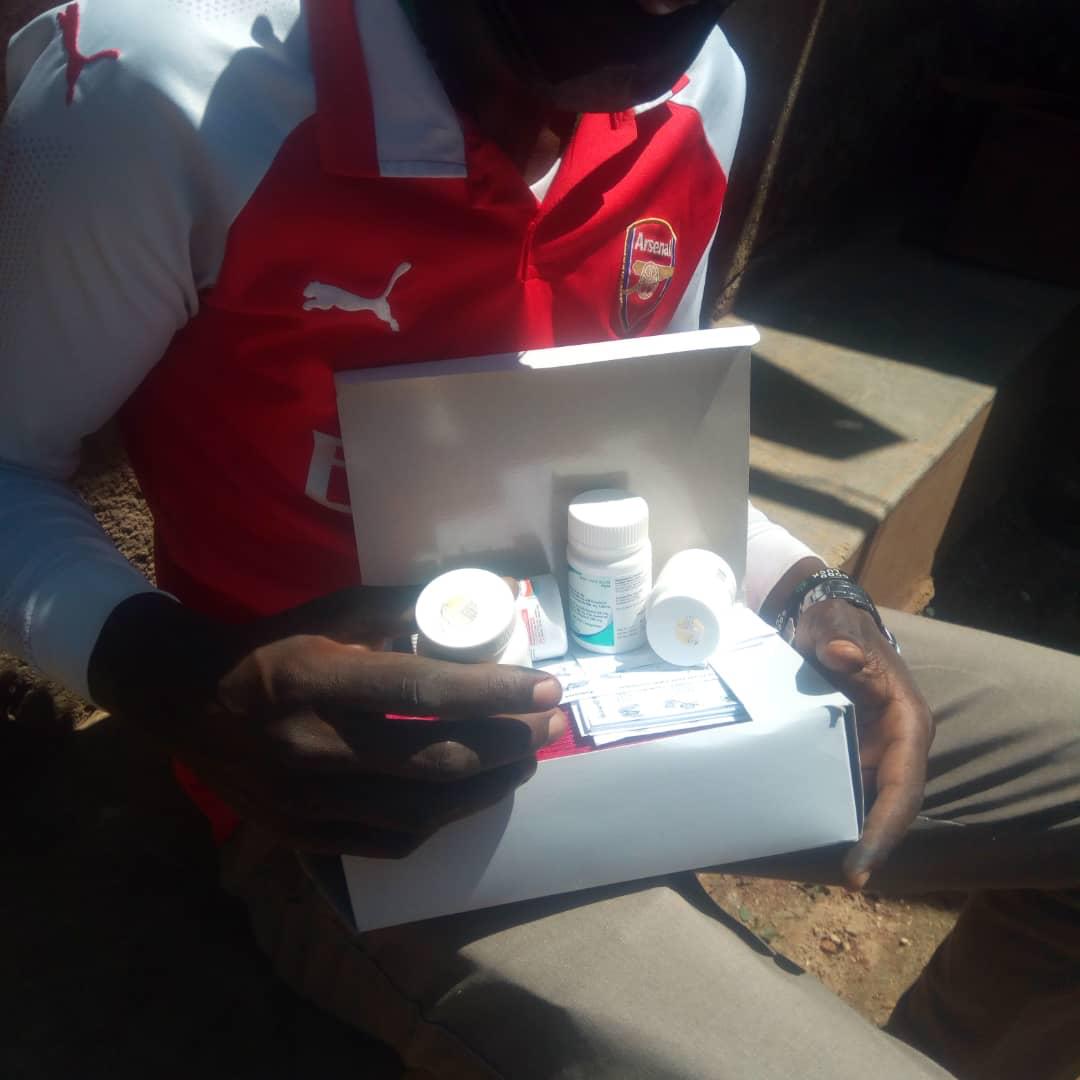The ban on transportation in Uganda, during this second COVID-19 related total lockdown has greatly affected LGBTQ persons and sex workers especially those living with HIV/ AIDS who are in the direst need of healthcare services especially in remote areas with little to no daily income to get by.
Kuchu Times spoke to the Executive Director at COPTEC, Joseph Kaweesi in-depth how they are navigating through this crisis to ensure their mandate of service delivery to their clients and adaptation to present restrictions in a bid to curb the ravaging second wave of COVID19 pandemic.
KT: Briefly reintroduce yourself and your organization to our audience.
J.K: I am Joseph Kaweesi, the Executive Director at Come Out Post Test Club (COPTEC) which is a registered transgender women led organization whose main purpose is to protect and support trans women in Uganda especially those living with HIV/AIDS. Our main office is located located in Nansana, Wakiso with a branch in Kimanya, Masaka.
KT: What services do you offer?
J.K: Our services include healthcare in form of HIV guidance, counseling and testing, home based care, awareness creation on HIV/AIDS prevention and management. We also offer social economic empowerment in form of Income Generating Activities (IGA) and support Village Saving and Loans Associations (VSLA) for trans women. Not forgetting social protection by providing safe houses and food supplements to our HIV/AIDS clients.
KT: How have you managed to ensure service delivery to clients that need your assistance?
J.K: We have partnered with the district COVID-19 task force to secure movements within the different districts. COPTEC is also currently utilizing online services (through zoom and teams) to hold sensitizations, dialogue meetings and trainings with targeted stakeholders. To add, we are strictly observing and streamlining COVID-19 standard operating procedures (SOPs) in our daily operations. Staff have been provided with COVID-19 prevention information, sanitizers and facemasks to keep safe.
Our long serving peers, mobilizers and field officers are in the field daily. They know some of our clients’ homes so they deliver services at their door step with use of motor bikes and bicycles.
Time has become crucial for us and it must be managed to reach as many clients as we can in different areas to avoid curfew hours affecting our service delivery. We also refer our clients on PrEP and ART in hard to reach areas to nearby facilities where we know that they can acquire these services.
KT: How has COVID19 affected your work especially in remote areas following the second total lockdown in the country?
J.K: COVID-19 has affected our delivery of PREP and ART medicines to our clients who are on treatment due to difficulty in transportation. The organization has to spend more funds on movement to access clients (beneficiaries) in the different parts where we operate. Many HIV/AIDS clients cannot even afford food and clean water as they are out of work or business.
COVID-19 and lockdown has also slowed down work in form of convening meetings, dialogues and trainings since they have to be re-planned to have them online or in small phases. We no longer conduct community activities like outreaches which used to help us to meet our clients and extend our services to them. This has made it difficult now to achieve some of our targets which are given by some partner organizations because there is minimal direct contact between us and other key populations at the moment like it was before COVID-19.
Even as we use online platforms, we have found difficulty in sharing knowledge and convening with those in remote areas where there is either no internet or some of our clients don’t know how to use this information and communication technology.
KT: What have been the highlights of your work during this period?
J.K: We are adjusting to integration of COVID-19 management and prevention within our programming. We are learning to utilize online platforms to reach out to clients and beneficiaries with healthcare services. As challenging as it is, we are also fundraising to support trans women living with HIV/ AIDS with food and funds to meet the high transport costs so we can reach out to beneficiaries in different localities. Some of our activities like nutritional support have been given a priority unlike other services we offer at our offices because community members don’t have food.
KT: How can you be reached for support or services?
J.K: Those that would like reach us can contact us through these emails: comeoutposttestclub@gmail.com or josephkawesi@yahoo.com. You can also call us on (+256) 775 411388, (+256) 706 383427 and (+256) 700438560. We seek and hope to corporate with all partners and key populations’ stakeholders to make sure that our services get to our clients especially those at the grassroots if all goes well.





